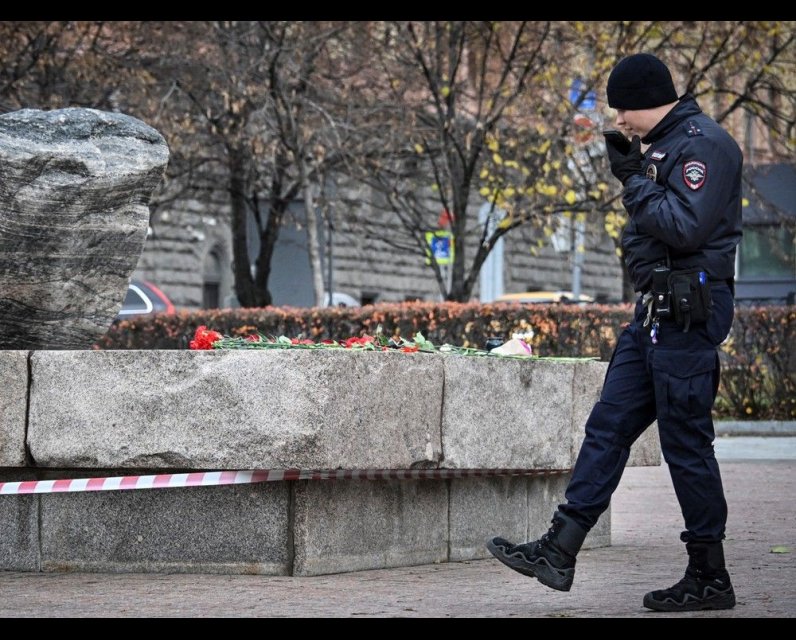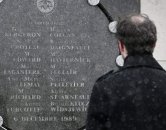Stay informed
Cold War KGB agent wins another shot at staying in Canada after ex-public safety minister’s decision found unreasonable

A Cold War KGB agent deemed “inadmissible to Canada on security grounds” has won another shot at staying in this country.
Vladimir Popov contacted the Canadian Security Intelligence Service (CSIS) shortly after he arrived in Canada on a visitor’s visa in August 1995 to tell the Canuck spy agency he’d been a member of the Soviet Union’s Komitet Gosudarstvennoy Bezopasnosti (KGB) from 1972 until 1991, according to a new Federal Court review. The judge examined Canada’s public safety minister’s March 2024 decision that denied Popov ministerial relief that would allow him to stay in this country because the Canada Border Services Agency (CBSA) “was not satisfied that (his) presence in Canada would not be detrimental to the national interest.”
Justice Anne Turley found the minister’s decision to be unreasonable.
“The application for judicial review is granted and the matter is remitted for redetermination,” Turley wrote in a decision out of Ottawa, dated Nov. 12.
Liberal Dominic LeBlanc was minister of public safety when Popov was denied relief.
His decision “suffers” from “flaws,” Turley said.
“While the minister repeatedly states that (Popov’s) evidence and submissions about his conduct since coming to Canada in 1995 were considered, the decision itself reflects no meaningful engagement with that evidence,” said the judge.
“The minister further fails to explain why the evidence was insufficient to establish that (Popov’s) continued presence in Canada would not be detrimental to the national interest. This lack of justification renders the decision unreasonable.”
Popov, a Russian citizen, made a refugee claim here in November 1995, almost four years after the fall of the Soviet Union, said her decision.
“The Refugee Protection Division concluded that (Popov) had established a well-founded fear of persecution based on his political opinion,” it said.
“He was thus granted Convention Refugee status.”
Popov applied for permanent residency in Canada in August 1997.
“This application is currently still pending,” Turley said.
The CBSA interviewed Popov in May 1998. It issued a report a decade later alleging he “was inadmissible” to Canada due to his KGB membership.
In December 2008, Popov applied for ministerial relief, “asserting that his presence in Canada would not be detrimental to the national interest,” said the decision.
In March 2024, LeBlanc “accepted the CBSA’s recommendation and concluded that he was not satisfied that (Popov’s) presence in Canada would not be detrimental to the national interest,” it said.
The Russian challenged that decision “on grounds of procedural fairness and reasonableness,” said the decision.
Turley found “that the ministerial relief decision is unreasonable for its lack of justification.”
The minister is required to consider “more than just national security and whether the applicant is a danger to the public or to the safety of any person,” said the decision.
LeBlanc’s “overarching error in the ministerial relief decision is the failure to engage with and assess (Popov’s) evidence and arguments,” Hurley said.
“It does not suffice to summarize arguments made and then state a peremptory conclusion, because that does not assist in understanding the decision made and its rationale,” Hurley said. “This is precisely what was done here.”
LeBlanc’s assessment reads “as a charging document for (Popov’s) past membership” in the KGB, said the judge.
“The ministerial relief decision refers to other factors including (Popov’s) expressed commitment to democratic values and human rights, his cooperation with Government of Canada officials, his lack of a criminal record in Canada, and his exemplary conduct and work history in Canada,” Hurley said.
“There is, however, no engagement with nor assessment of this evidence. In each instance, after setting out that the evidence was ‘considered’ or ‘taken into account,’ there is simply a conclusory statement that the evidence is insufficient to overcome the predominant national security and public safety considerations.”
The judge gave examples to illustrate LeBlanc’s approach.
“The CBSA has considered Mr. Popov’s assertions that he has now distanced himself from the KGB and its goals. His expressed commitment to democratic values and human rights and freedoms, including through his claimed refusal to participate in KGB-led anti-government coups in Russia in 1991 and 1993, as well as through his cooperation with GOC (Government of Canada) officials and publicly exposing the activities of the KGB and sharing criticism of Russian President (Vladimir) Putin at risk to his own safety, have also been taken into account,” said one example. “The CBSA is of the opinion, however, that these factors are not sufficient to overcome the other predominant national security and public safety considerations of this case — in particular, Mr. Popov’s admitted long-term, active, and informed role with the KGB.”
According to another example from LeBlanc’s decision, “the CBSA has also duly considered Mr. Popov’s other statements regarding his activities and establishment from his arrival in Canada to the present, including his statements to the effect that: he has learned English and established himself in his community; his wife and son are leading ‘exemplary lives’ in Canada; they file their taxes; they support a variety of community non-profit organizations; and he, his wife and son purchased a home in 2006. The supporting documents and letters of support he submitted in this respect have also been taken into account. Nonetheless, the CBSA is of the opinion that these factors are not sufficient to establish that Mr. Popov’s presence in Canada would not be detrimental to the national interest in light of the predominant national security and public safety concerns in this case — in particular, his prior voluntary, informed, high-level, dedicated role in the KGB for 19 years, through which he personally recruited over 30 KGB informants and engaged in various activities which would have benefitted the KGB as a whole — an agency notorious for its violent tactics, engagement in anti-Western espionage, including against Canada, and brutal suppression of Soviet dissidents.”
LeBlanc is correct, “when he states that he is ‘entitled to ascribe more weight to some factors over others,” Hurley said.
“That said, this does not mean that the minister can simply, as was done here, baldly conclude that personal factors do not outweigh the ‘predominant national security and public safety concerns.’”
According to the judge, “it was incumbent on the minister to ‘come to grips with the considerable body of evidence put forward by’” Popov. “Here, the applicant submitted a voluminous amount of evidence and submissions concerning his life after the KGB. In particular, he specifically addressed his disassociation from the organization and expressed regret over his past involvement. He publicly condemned the KGB — publishing two books that exposed its operations, delivering multiple public speaking engagements, and appearing in interviews on television and digital platforms. These relevant and significant factors are not meaningfully engaged with in the ministerial relief decision.”
Our website is the place for the latest breaking news, exclusive scoops, longreads and provocative commentary. Please bookmark nationalpost.com and sign up for our daily newsletter, Posted, here.



Comments
Be the first to comment